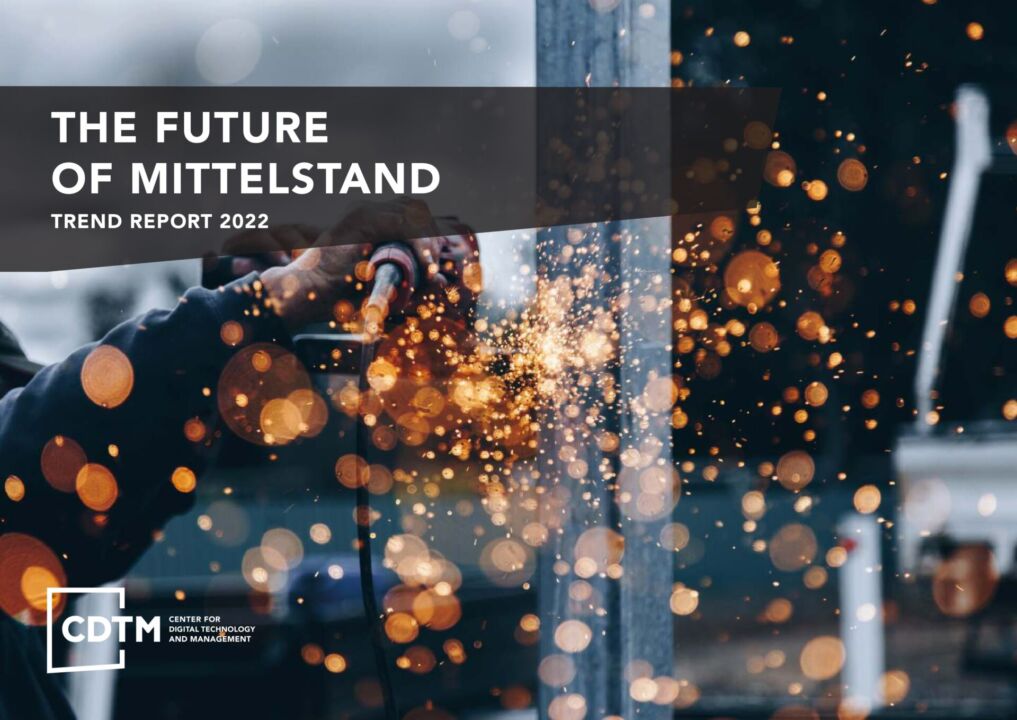
The Future of Mittelstand
Abstract
The Mittelstand is an integral part of the economic landscape of Germany. Its importance for Germany cannot be overstated as its influence is not limited to the economical aspect, but extends to German culture in general. At the same time, the Mittelstand is not being spared in a world that is battered by challenges from all directions, be it economical, environmental or technological. Amid this turmoil, we are taking a look into what lies ahead for the sector. Will current technological developments fundamentally change how these companies are operating? Do the economics of the future even allow for Mittelstand businesses to exist? How do environmental challenges and societal divides play into this?
TRENDS
Geopolitical Cooperation: Geopolitical cooperation refers to international actions by governments to jointly address global issues, such as cross-border migration and the accompanying economy-specific impacts. The degree of this driver is measured on a scale ranging from excessive protectionism, which reduces nations’ interdependence and forces decoupling, to extensive globalization, in which all countries routinely trade goods and exchange value. In this regard, the extent of future geopolitical cooperation depends on technology, trade parity, and the coherence of national policies on issues such as climate change. Uneven distribution in the global supply chain could push countries to take measures such as trade restrictions to move the offshore business back. In addition, differences in climate change policies across countries can lead to trade imbalances, such as unfair price competition due to carbon pricing, further reinforcing domestic market protection.
Technological Advancement: In the past, the degree of technological advancement significantly contributed to the success and competitiveness of Mittelstand companies, enabling them to gain significant market share in their respective, often niche, domains and build a strong global brand. Technological advancement encompasses the identification of innovative processes to improve the efficiency and quality of products, as well as the flexible development of novel products which address dynamic customer needs. If companies succeed in implementing frontier technologies, they can generate a progressive and differentiated product portfolio, stay competitive internationally, and drive the development of key technologies and processes.
Global Pioneers: This scenario describes a future in which Mittelstand companies can operate globally without restriction, becoming leading developers and adopters of the latest key technologies while maintaining a leading market position.
Competitive Paralysis: This outcome is characterized by global competition, new markets, and cross-industry competitors. It portrays a future in which the Mittelstand no longer drives innovation, lags technologically, and disappears into insignificance.
Dystopian Realm: This scenario illustrates a future in which geopolitical tensions lead to a regression in technological development and a greater interest in military ventures, reinforced by the rise of a protectionist state. Thereby, the Mittelstand is more tied to governmental policies than ever.
Domestic Technology Champions: In this outcome, regulations preventing global competition led to decoupling and protectionism. Therefore, Mittelstand companies focus on domestic business. However, even without international relationships, the Mittelstand is at the forefront of innovation.
Business models
1. PRIMS - Program for rotational internships within the Mittelstand
2. LAGERMEISTER - Exchange platform for commercial warehouse space
3. REbattery - Circular economy for batteries
4. Aquatos - Water reuse solutions for the Mittelstand
5. MittUp - Enabling Mittelstand companies as angel investors in the startup ecosystem




